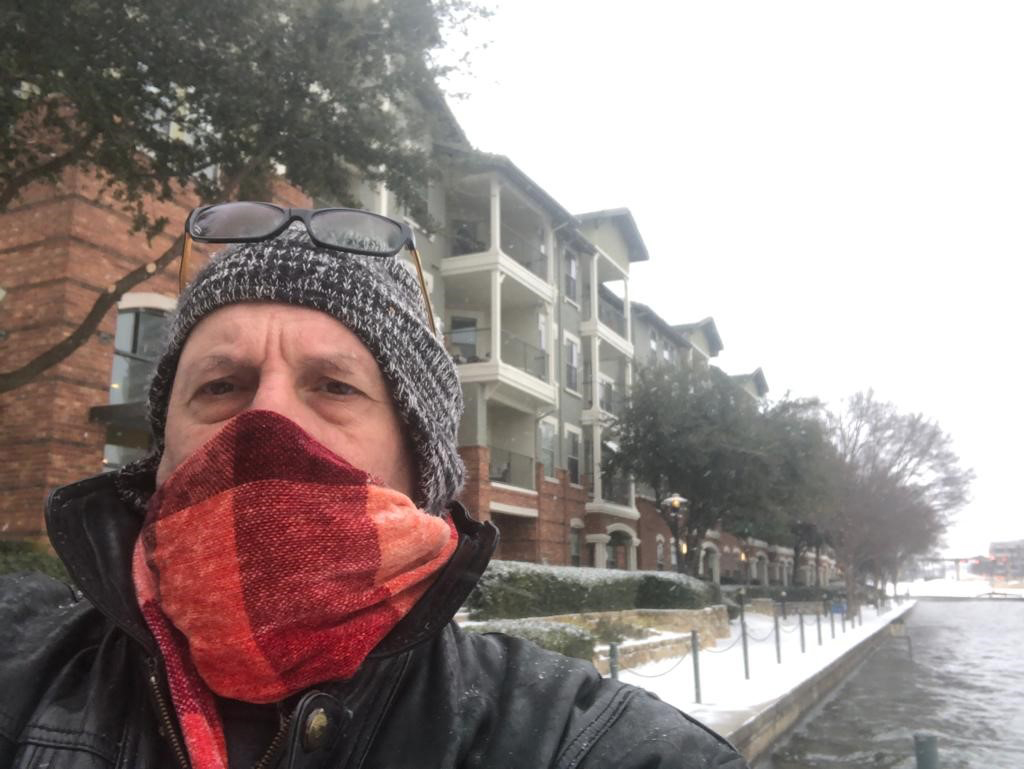
SA News

SA expats face ‘apocalypse now’ in Texas
South African Jewish expatriates in Texas, United States, have experienced isolation, outages, and chaos on a scale that they never expected when they made the move to America, after the state was hit by an unprecedented snowstorm from 10 to 17 February, causing a humanitarian crisis.
“It felt apocalyptic. If we’d had any warning we would have prepared, but there was no inkling that we would be in such a crazy situation,” says Deborah Barak, who is in Houston with her partner and one-year-old daughter. “We had no power, water, or heat from Sunday 02:00 [14 February] to Wednesday night [17 February], aside from a couple of hours on Monday morning. To keep warm, we stayed in the smallest room in the house with all the blankets we could find.
“Luckily, we had gas to cook with and had recently been shopping, so we ate well, but we had no water to clean with or flush toilets. After a few days, the dirt started to pile up. I dressed my daughter in layers and tried to keep her under blankets, but she’s pretty mobile and got frustrated that we wouldn’t let her out of the room.
“There was absolutely nothing open around us, and very little information about what was going on. We were truly isolated. Occasionally, we would go for a careful drive to warm up in the car and charge our phones, but we kept those to a minimum because we had only a little petrol and there was none to be found anywhere. Luckily, we had a case of water, because we couldn’t find any. After several attempts, we found some diapers. We were down to just three when we found some.
“We got our power and heat back on Wednesday, but it took several more days before we had drinkable water. Everything is back to normal now, and it’s hard to believe that we felt so helpless about keeping our child safe and warm. It’s quite shocking how easily you can suddenly be cut off from the rest of the world.”
Trevor Kobrin lives in an apartment block in Irving, near Dallas. He was hit by rolling blackouts for three days, with only intermittent power coming on unexpectedly for half an hour, often in the middle of the night. At one point he was so cold, he warmed a cup of soup with heat from candles, and tried to make a cup of tea by boiling water on the stove. Soon after his electricity returned, he found he had no water in his taps. “Almost a week later, I still have no water,” he told the SA Jewish Report just hours before his water did return.
“I was able to go to a friend to shower and I had enough to drink, but needed water for washing dishes, flushing toilets, and so on. On Thursday night [18 February], I was so desperate, I went out to collect snow and melted it. The snow has since melted, and I was able to buy water, but you are only allowed to buy two five-litre bottles a day at the moment. On Sunday [21 February], I went to the complex swimming pool to try to get some water. It was all iced up, but I found a corner where the ice had melted, and I took from there.” Kobrin says he was in Cape Town at the height of its drought crisis, and what he learnt then helped him in this situation.
Says Linda Behr, “My husband and I left South Africa on a beautiful day in January 1977 and believe it or not, arrived in Dallas, Texas during an ice storm. Since then, we have had similar ice storms every couple of years. None of those winter storms prepared us for the one we just had!”
On Thursday morning, 11 February, she says, “I was due to go get my second COVID-19 vaccine. At 10:00 I received a call that my appointment was cancelled – the distributors were unable to get the vaccines out because of icy roads.
“On Saturday, I managed to get to the grocery store, which was packed. We were told that temperatures on Monday could reach -15 C. In the 44 years that we have lived here, we had never heard of Texas experiencing such low levels. We woke up on Monday morning to -13 C. Our power had gone off in the middle of the night, and it was freezing!
“We heard we were going to be having rolling blackouts. The power was supposed to be off for 15 to 45 minutes then go on again, but the people working these rollouts had no idea how to manage it properly. So the power would come on for anywhere from one to four hours, then go off for about seven to nine hours.
“One thing saved us. We have a gas fireplace, so we huddled there to defrost! My daughter, Tracy, and her boyfriend, Moshe, were staying with us. Moshe got very creative. He took one of my pots with a long handle, filled it with water, and boiled the water over the fire. He also made toast and scrambled eggs over the fire.
“For two days, the power was more off than on. Many people had burst water pipes, some died because of the extreme cold, and other weather-related problems have caused billions of dollars of damage in what may become Texas’s most expensive natural disaster in history.”
Joan Gremont in Dallas says, “On Friday night during our family Shabbat Zoom, our son in Austin mentioned that they had been without power for more than 24 hours. I told them they should come to Dallas. Austin had precipitation which had turned to ice, but Dallas didn’t have – yet. He agreed, and at 21:00, they packed up the kids, food, and two dogs, and were on the road, a 200-mile (322km) trip, arriving at midnight.”
Her son, Evan Gremont, says they looked “like refugees after packing up the house in complete darkness”. Ironically, the power returned to his house one hour after he left, and didn’t go off again. However, since returning to Austin a few days later, he has had to boil water to drink, and people have had to queue for water.
“It was cold, but we had power,” says his mother. “It got colder, and on Monday, our power went off and on without any warning. We left a lamp on in the living room. This was our signal that it was on or off as we sat in front of the raging fire in the gas fireplace.
“When there was no heat late on Monday afternoon, we all packed up and went to a friend, who lives in a spacious house not even a mile away from us, but they never lost power. There were 14 of us in their house, plus three dogs!
“The next day, we came home after we were able to determine that our power was back on. The pool iced over. In our 42 years in Dallas, we had never seen anything like this. I put the kettle on so we could have our Five Roses tea – first priority! That night, the power was out again so we went back to our friends, and returned home on Wednesday morning. We were much better off than tens of thousands of others,” she says.
Gremont says many organisations offered assistance, for example, one of their local kosher restaurants made free, hot kosher meals to distribute to anyone who needed it.
“The only reason we were able to drive on the snow-covered roads is that our son drives a four-wheel-drive truck. Neighbourhood roads were never cleared of the snow. Texas doesn’t have the equipment or manpower for this.”






